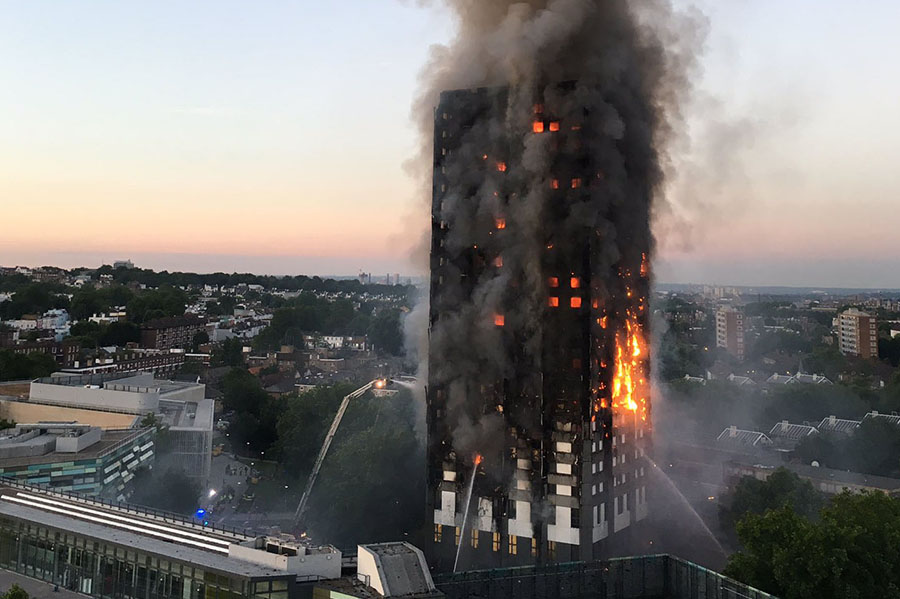The BBC reported last week that a local councillor who oversaw the Grenfell Tower refurbishment has admitted questioning the colour of the cladding – but not whether it was safe. Rock Feilding-Mellen told a public inquiry that he believed safety was being handled by experts – a belief that will, no doubt, haunt him for the rest of his life.
My first grown-up job after leaving university was in the engineering industry. After a year spent supporting the factory’s personnel manager – no-one talked about HR then – I was invited to become Health and Safety Officer, overseeing the implementation of the 1974 Health and Safety at Work Act. I knew nothing about safety, but from my training I learned that no employee can escape personal responsibility for working safely and taking care for the safety of others. The job of the company is to do more than abide by rules. It is to think through what it means to have a safe working environment; to publish a clear policy, and to create the participation structures which ensure that safety becomes a living thing. Health and safety is about the way we all take responsibility for caring for each other.
Four years later I had moved into a different factory and been appointed personnel manager of a large plant employing 1500 people and with its own power station. During the summer shutdown the safety officer – who reported to me – was on holiday and I was the nominated manager for safety matters. The manager in charge of the power station walked into my office, told me about a ‘small explosion’ that had occurred there, and stood over me at my desk while ‘instructing’ me from the authority of his forty years’ experience that we didn’t need to bother the factory inspectorate about something like this. I should leave it to him.
It’s difficult when you are new and somebody more senior than you tells you ‘this is how we do things here.’ This didn’t feel right . When I checked the legislation there was no doubt: this should be reported. What was I to do? I telephoned my father, a retired manager of long experience. He made it simple. ‘Put your advice in writing’.
The senior colleague was angry but followed my written advice. Safety and I had more respect from him from then on.
On the same day as that BBC report Rob Lake – who has long experience both in NGO’s and in sustainable investment posted the following comment.
‘A while ago I said on LinkedIn that I thought a lot of ESG people want to change jobs so that they can make a positive impact in the real world.
A friend contacted me and said this: Your comment really resonated for me. I wondered if I was alone in feeling like that. We’re supposed to be celebrating now ESG is THE BIG THING, aren’t we? The job has become so exhausting! So focused on marketing, reporting, certifying, navigating internal politics: It’s hard to tell if we’re making any difference.’
This has provoked a debate about burn-out among ESG specialists. The pages of Linked-In were full of comments like ‘lipstick on a pig’.
Health and Safety and ESG have something in common. They are not sealed compartments. They are connected to the conscience of the company. None of us can outsource our consciences. No councilor should outsource conscience to a safety specialist. No company should outsource its conscience to an ESG methodology. No ESG specialist should allow conscience to be buried beneath a pile of questionnaires.
How many of those frustrated, burned-out people recall a real conversation about beliefs and values with those to whom they report? How many CEOs or Chairs have initiated such a conversation with the ESG leaders they have appointed? How did the company respond the first time someone suggested out that its behaviours were not in line with its values?
A good induction for ESG specialists would echo that Health and Safety Training I received 40 years ago. Your success depends on more than compliance and certification. It is about the way everyone in the company takes responsibility for caring for others, inside and outside the company. Demand this of your colleagues and challenge your board to think through what this means. If they can’t or won’t, leave and tell them why you are leaving.
We owe it to our organisations to be less respectful of authority and more respectful of our consciences. We will earn more respect from authority when we exercise this independence. We will become ill if we don’t.
Mark Guider is Founder of Tomorrow’s Company and a Senior Advisor to the Board Intelligence Think Tank
23 May 2021
